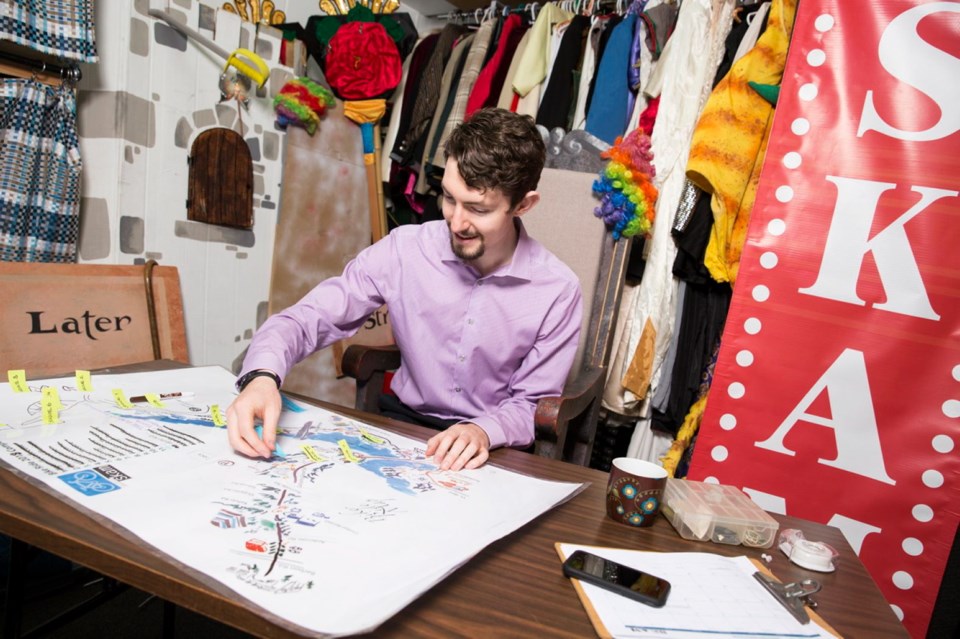The working world of independent theatre comes with an “urgency” rarely encountered in university fine arts programs, said a UVic theatre student after completing co-op elements during his studies.
“It’s ‘This has to happen and that has to happen and there is a show coming so we have to do it now because opening night is not going to move,’ ” said Brendan Agnew, a fine-arts student who majored in theatre at the University of Victoria.
His work with independent theatre was an opportunity presented to him through UVic’s co-op program, which offers students a chance to step into the work field during the course of their studies.
Agnew, who focuses on the production side of theatre, said the program at UVic was excellent and he had great access to work behind the scenes at the Phoenix Theatre.
But his university experience was another world from his co-op time, when he worked for SKAM theatre company and its annual summer festival SKAMpede.
Andrea Giles, UVic’s acting executive director of co-operative education and career services, said that at any one time, 4,200 of UVic’s students are working on a co-op placement.
UVic is the fourth largest co-operative university in Canada behind third-place University of B.C., Université de Sherbrooke in Quebec at second and the University of Waterloo in Ontario, which is also the largest co-op program in the world.
Giles noted UVic extends the chance to work a co-op placement for every graduate student. This makes it the largest co-op program for grad students in Canada.
During his experience, Agnew said festival shows were especially challenging because they were in improvised spaces, many of them outdoors and the production elements were often left to him.
“There was no head carpenter, no head of wardrobe and when we had to hang draperies to separate certain areas it was up to me,” said Agnew. “I had to figure out very quickly what does that do and what does this do and what are the dimensions of the drapes to make it all work.”
“There was an urgency there that can create some really great learning opportunities,” he said,
Agnew is now attending the National Theatre School of Canada in Montreal. His course work at UVic is finished, although he has yet to formally graduate.
Co-op programs are usually completed during one of the three terms of an academic year.
Students are placed at a company, government ministry or non-profit agency that aligns with the educational program.
Giles said all the co-op terms are paid, which means UVic co-op students typically graduate with a low level of student debt.
Earning money is also a mandatory element of the program. Without pay, the position would be volunteer and that fails to meet the accreditation.
“If it’s not paid, it’s not co-op,” Giles said.
She said 45 separate departments and faculties at UVic now offer a co-operative element to their students.
The only faculties that don’t offer co-op opportunities are the ones whose programs already require a practice element: nursing, child and youth care, education, public policy, health, Indigenous government and social work.
For professional faculties, such as engineering and business, a co-op program is mandatory.
In all other programs and degree areas, humanities, arts and sciences the undergraduate students have the opportunity to work a co-op element.
Even students in rarefied academic areas, such as philosophy, can work in a co-op program.
“I would put a philosophy student just about anywhere where they are looking for critical-thinking skills, research ability and the ability to communicate,” Giles said.
“These students don’t graduate and go out and find jobs as philosophers,” she said. “But they are all learning what today’s work force is looking for — creative problem solving.”



